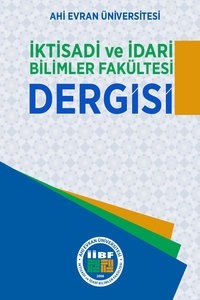KEY PEDAGOGICAL PRINCIPLES OF IT INTEGRATION IN HIGHER EDUCATION
The article highlights general pedagogical principles focused on training specialists in a higher educational institution in the context of the use of information technology. The authors define didactic principles which determine education content, analyse their practical implementation. The study argues that the effectiveness of the use of information technology is ensured by the scientifically based combination of traditional and innovative teaching methods. It confirms the idea that there is an inextricable link between the use of pedagogical and modern information technologies in education. Since knowledge, unlike traditional skills rapidly becomes obsolete, the main task in education is to develop the ability to learn and think critically. A fundamentally new approach to learning, which is called “constructivist didactics”, was revealed. The essence of this direction in didactics is that knowledge cannot be transferred from teacher to student and cannot be found in a book. The authors proved that it can be developed in the course of the relevant activity, on the basis of one’s own interests, abilities, and on the peculiarities of one’s intellect. Special attention is paid to the various forms of students’ productive activity and their self-organization in the learning process. The conditions of efficient development of critical thinking were determined, namely: the students should be prepared for the topic of discussion well in advance; have sufficient level of maturity; are independent in acquiring knowledge, be able to formulate a problem and find their own arguments.
Anahtar Kelimeler:
Didactic principles; Information technology; Higher education; Pedagogical principles, ICT
___
- Bocoş, M. & Jucan, D. (2008). The fundaments of pedagogy: The theory and the methodology of the curriculum. Didactic reference points and instruments for the training of teachers. Piteşti: Paralela 45 Publishing House. (in Romanian). Sämtliche Werke, Bd 110, В., 195669; Schriften und Reden, Bd 12, B. Lpz., 1950; в рус. пер. Руководство для немецких учителей, М., 1913; Избранные педагогические сочинения, М., 1956. THOMPSON J. G. The Ten Principles of Motivation (2011). Retrieved from https://juliagthompson.blogspot.com/2011/03/ten-principles-of-motivation.html Yelland N. Changing worlds and new curricula in the knowledge era. Educational Media International. 2006; 43, 121–131. Велика дидактика. Закони добре організованої школи / Я. А. Коменський // Коваленко, Є. І. Історія зарубіжної педагогіки: хрестоматія: навч. посіб. для студ. вищ. навч. закл. / Є. І. Коваленко, Н. І. Бєлкіна; М-во освіти і науки України, Ніжин. держ. ун-т ім. М. Гоголя. - К.: Центр учбової літ-ри, 2006. – С. 155-185. Голуб, Б. А. (1999) Основы общей дидактики: Учебное пособие. – М.: Гуманитарный изд. центр «Владос». Гордашников, В. А., Осин, А. Я. (2009) Образование и здоровье студентов медицинского колледжа. – М.: Академия Естествознания. – [Электронный ресурс]. – Режим доступа: http://www.rae.ru/monographs/77 Данилова, Е., Пудловски, З. (2008) Развитие навыков профессиональной коммуникации в инженерном образовании // Высшее образование № 10. – С. 50. Дидактические принципы: (отрывки из «Великой дидактики») (1940) / Я.А. Коменский; вступ. А. А. Красновский. – М.: Наркомпрос. Положення про дослідницький університет (2010): постанова Кабінету Міністрів України від 17.02.2010 р. № 163 // ВВР. № 25. Столяренко, Л. Д., Самыгин С. И. (2005) Педагогика: 100 экзаменационных ответов. Экспресс-справочник для студентов вузов. Издание 4-е, испр. и доп. М.: ИКЦ МарТ; Ростов-на-Дону: Издательский центр МарТ. Усков, И. В. (2006) Информационно-коммуникационные технологии как средство развития мотивации учебной деятельности студентов: дис. … канд. пед. наук: 13.00.01. – Рязань. Ушинский, К. Д. (1946) Избранные произведения. Вып. 3. Принципиальные вопросы русской педагогики. – М.; Л.: Изд-во АПН.
- Yayın Aralığı: Yılda 2 Sayı
- Başlangıç: 2017
- Yayıncı: Kırşehir Ahi Evran Üniversitesi
Sayıdaki Diğer Makaleler
ARKETİPSEL MARKA KİŞİLİĞİNİN TÜKETİCİNİN SATIN ALMA NİYETİ ÜZERİNDEKİ ETKİSİ
AVUSTRALYA’DA SOSYAL HİZMETLERE İLİŞKİN SORUNLAR VE ÇÖZÜMLERİ
Ömer Faruk CANTEKİN, Ayşe Nur PEKASIL
KEY PEDAGOGICAL PRINCIPLES OF IT INTEGRATION IN HIGHER EDUCATION
Tetyana TARNAVSKA, Nataliia GLUSHANYTSIA
XVI. YÜZYILDA OSMANLI DEVLETİ’NDE EŞKIYALIK BAĞLAMINDA BÜROKRATİK KAOS
İSTANBUL’LA YÜZLEŞME DENEMELERİ: ÇEPERLER, HAREKETLİLİK VE KENTSEL BELLEK
